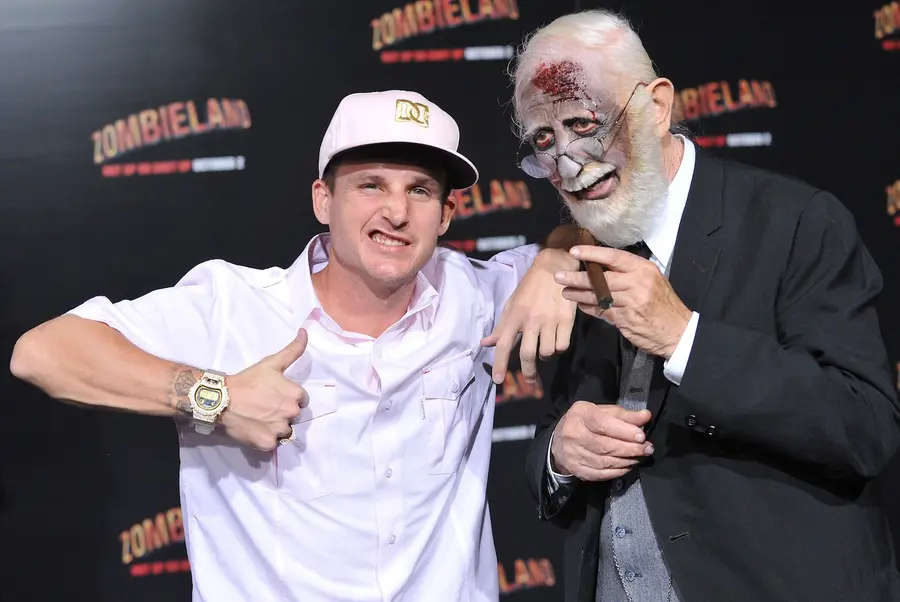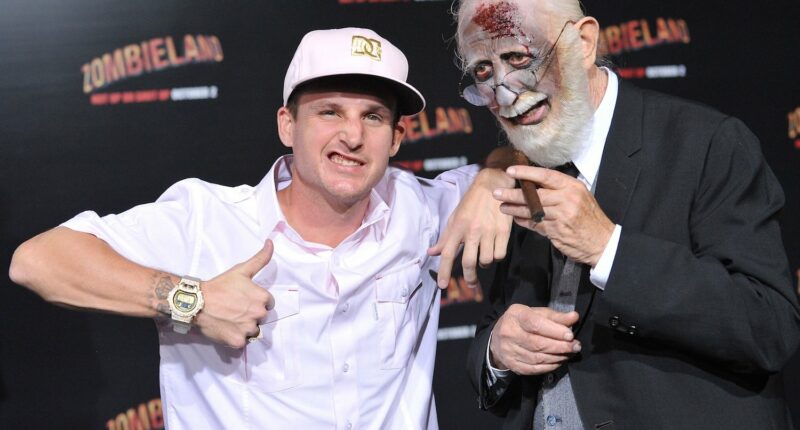Share this @internewscast.com
It might seem a bit cliché for someone in their early 40s to reminisce about the past, but MTV was undeniably more captivating during my younger years. Sure, the narrative is well-known. In the 1980s, MTV shattered conventions, transformed music, and left an indelible mark on pop culture. “I Want My MTV.” It was revolutionary and iconic. But let’s be real: the late 1990s and early 2000s were when MTV truly reached its zenith as a powerhouse of entertainment and global influence.
Think about it:
On any given weekday back then, MTV’s schedule was a thrilling blend of music, frenzy, and unique charisma. Mornings and early afternoons were dominated by music videos, which seamlessly transitioned into the cultural phenomenon that was Carson Daly’s “TRL.” As evening approached, viewers were treated to a marathon of original shows that became defining experiences for a generation, including:
- Cribs
- Singled Out
- Road Rules
- The Real World
- Laguna Beach
- Pimp My Ride
- Teen Mom
- True Life
- Making the Band
- Beavis and Butt-Head
- The Tom Green Show
- Loveline
- Jackass
- The Osbournes
And then there were the MTV Award Shows—live spectacles that were unpredictable and genuinely shocking. These events weren’t about “planned controversies” but rather unscripted pandemonium—on-air rivalries, outlandish pranks, and unforgettable moments that quickly became etched in pop culture lore.
Moreover, if you were tuned in when the screen abruptly turned black and Kurt Loder appeared with the distinct “MTV News” typewriter clack-clack intro, you knew something monumental had just occurred. Those broadcasts were like seismic events in the media landscape.
Today’s MTV… well, it leaves much to be desired. Some of this is beyond their control—after all, young audiences now turn to YouTube for music videos and may never have even subscribed to cable. However, MTV’s decline is partly self-inflicted. Their current content lineup is almost laughable. To illustrate, I randomly selected a day next week, November 5, and here is MTV’s ACTUAL programming schedule:
- 12:00 AM – Ridiculousness
- 12:30 AM – Ridiculousness
- 1:00 AM – Ridiculousness
- 1:30 AM – Ridiculousness
- 2:00 AM – Ridiculousness
- 2:30 AM – Ridiculousness
- 3:00 AM – Ridiculousness
- 3:30 AM – Ridiculousness
- 4:00 AM – Ridiculousness
- 4:30 AM – Ridiculousness
- 5:00 AM – Ridiculousness
- 5:30 AM – Ridiculousness
- 6:00 AM – Ridiculousness
- 6:30 AM – Ridiculousness
- 7:00 AM – Ridiculousness
- 7:30 AM – Ridiculousness
- 8:00 AM – Ridiculousness
- 8:30 AM – Ridiculousness
- 9:00 AM – Ridiculousness
- 9:30 AM – Ridiculousness
- 10:00 AM – Ridiculousness
- 10:30 AM – Ridiculousness
- 11:00 AM – Ridiculousness
- 11:30 AM – Ridiculousness
- 12:00 PM – Ridiculousness
- 12:30 PM – Ridiculousness
- 1:00 PM – Ridiculousness
- 1:30 PM – Ridiculousness
- 2:00 PM – Ridiculousness
- 2:30 PM – Ridiculousness
- 3:00 PM – Ridiculousness
- 3:30 PM – The Challenge
- 5:00 PM – The Challenge
- 6:30 PM – Ridiculousness
- 7:00 PM – Ridiculousness
- 7:30 PM – Ridiculousness
- 8:00 PM – Ridiculousness
- 8:30 PM – Ridiculousness
That’s 16.5 hours of Ridiculousness out of 22 broadcast hours. The lineup doesn’t show what happens after 8:30 pm. I think they play movies.
As you may know, “Ridiculousness” is hosted by Rob Dyrdek. Rob is a former professional skateboarder from Ohio who somehow turned a scrappy skate career into one of the most quietly successful TV empires of the past two decades. How big of an empire? Thanks to a lawsuit, we actually know the real details. And they are… ridiculous.

(Photo by Jon Kopaloff/FilmMagic)
A Ridiculous Fortune
After making a name for himself in the mid-2000s with MTV hits like “Rob & Big” and “Fantasy Factory,” Dyrdek pitched the network on an idea he described as a “cool, fast-paced version of America’s Funniest Home Videos.” That concept became “Ridiculousness” – a half-hour show where he, co-hosts Chanel West Coast and Steelo Brim, and a rotating cast of celebrity guests watch and comment on viral fail clips.
What began as a modest filler show quietly grew into the cornerstone of MTV’s entire brand. Its formula was cheap, flexible, and infinitely repeatable: endless internet clips, quick edits, and Dyrdek’s calm, deadpan humor anchoring it all. Before long, “Ridiculousness” wasn’t just another show—it was MTV itself.
If you’re a fan, there’s some bad news. Earlier today, MTV officially announced that “Ridiculousness” has been canceled. The good news? The network produced a staggering 46 seasons and nearly 1,700 episodes over its 14-year run—enough content to keep airing in syndication for many years to come.
Lawsuit Reveals Salary & Earnings
“Ridiculousness” isn’t just hosted by Rob Dyrdek, it’s also produced by his own company, Superjacket Productions. For years, Superjacket operated as a quiet profit engine within MTV’s ecosystem, churning out hundreds of episodes annually while keeping costs low and margins high. But last month, the company filed for Chapter 11 bankruptcy protection, citing what it described as “significant financial strain caused by reduced payments from MTV and ongoing disputes with lenders.”
According to Superjacket, MTV’s decision earlier this year to alter its production orders and payment schedule dramatically cut revenue, leaving the company unable to service its debt. Lenders, however, accused Dyrdek’s team of mismanagement and pushed to seize control of the company, setting off a high-stakes legal battle over the rights to “Ridiculousness” and its lucrative production contracts.
Fast forward to today, and a new filing in that bankruptcy case has revealed just how much money Dyrdek personally earned from the show — and the numbers are staggering. Court documents reviewed by Bloomberg News show that MTV has been paying Dyrdek at least $32.5 million per year and that it was on track, before the cancellation, to increase his salary to $45 million annually under renewal options that would have extended production through 2029.
Here’s how Dyrdek’s pay structure breaks down:
- Executive Producer Fee: $21,000 per episode
- On-Camera Fee: Starts at $61,000 per episode, increasing to as much as $101,000 near the end of the contract
- Performance Bonuses: $2.5 million each time MTV orders a new 168-episode batch (typically twice a year)
- Equity Participation: 12% equity stake in Superjacket’s enterprise value above $210 million
- Insurance Policy: $200 million “key man” life insurance policy
On that last point: Key man insurance is a policy a company takes out on an executive whose death or incapacitation would cause severe financial harm to the business. Rob Dyrdek is considered so essential to Superjacket’s success that the company carries a $200 million key man policy to protect against the financial fallout if he were ever to die or become unable to work.
So just how lucrative has Ridiculousness been for Rob?
When you total it all up, even with the smaller salary he earned in earlier seasons, across 14 years and nearly 1,700 episodes, Rob Dyrdek has earned around $300 million from the show. An amount that rivals some of television’s most iconic syndication windfalls.
$32.5 million per year minimum! $300 million total earnings! From Ridiculousness! Now you can understand why we currently peg Rob Dyrdek’s net worth at $200 million. Now you know how Rob has been able to buy not one, but THREE homes in the ultra-exclusive Mulholland Estates gated community in Los Angeles. Rob has spent more than $25 million purchasing properties in Mulholland Estates, which is home to celebrities such as Kendall Jenner, Christina Aguilera, Vanna White, Paris Hilton, Big Sean, and DJ Khaled. Rob’s first Mullholland Estates purchase occurred in 2015, when he paid $10 million for an undeveloped 3-acre lot, the largest lot in the community. It remains undeveloped as of this writing.
But here’s my favorite fact about Ridiculousness…
Theme Song Royalties
Rob and his castmates are not the only people who have made a fortune off “Ridiculousness.” The show’s theme song is “Uncontrollable Urge,” by the 1980s synth pop band Devo. The song wasn’t much of a hit when it was released in 1978. It was written by Devo’s co-lead singer, Mark Mothersbaugh. As the sole songwriter, Mark gets paid a royalty EVERY TIME “Ridiculousness” airs. And as you can see, “Ridiculousness” airs… a lot. In an interview with Rolling Stone earlier this year, Mark pulled back the curtain on those song royalties. Mark’s LIFETIME Spotify royalties amount to around $150,000. Not just “Uncontrollable Urge,” for all of Devo’s catalog. In an average year, Mark has made $1 MILLION in “Ridiculous” royalties 🙂
(function() {
var _fbq = window._fbq || (window._fbq = []);
if (!_fbq.loaded) {
var fbds = document.createElement(‘script’);
fbds.async = true;
fbds.src=”
var s = document.getElementsByTagName(‘script’)[0];
s.parentNode.insertBefore(fbds, s);
_fbq.loaded = true;
}
_fbq.push([‘addPixelId’, ‘1471602713096627’]);
})();
window._fbq = window._fbq || [];
window._fbq.push([‘track’, ‘PixelInitialized’, {}]);






